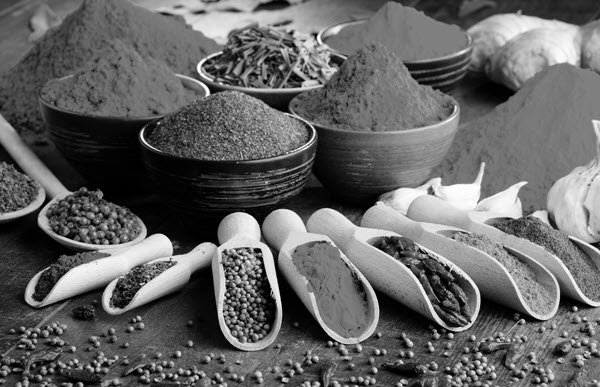Inflammation is a natural process and involves the activation of the body’s immune system in response to infection or injury. Following exposure to pathogens or physical injury, inflammation is beneficial as it enables the body to heal.
However, inflammation can become a chronic, long-term state, leading to multiple health issues, including arthritis, type 2 diabetes, cardiovascular disease, and allergies.
Fortunately, lifestyle adjustments can effectively reduce a prolonged inflammatory response. This article lists 15 ways to decrease inflammation and help you to stay healthy and strong.

There are numerous methods to control inflammation and alleviate its side effects and related medical conditions, such as pain, swelling, stiffness, chronic fatigue, or mood swings.
Adopting a healthy, anti-inflammatory diet is the first step in fighting persistent inflammation. An anti-inflammatory diet includes food rich in antioxidants, vitamins, minerals, and fiber, such as:
Note: Anti-inflammatory diet produces long-term effects when coupled with supplementation. Enhance your immune system with Osmosis MD Immune Activator, a powerful detox supplement.
Certain foods are triggers of the inflammatory process in the body. To help your body stay healthy keep away from pro-inflammatory foods such as:
Spices not only add flavor but have numerous health benefits, such as aiding digestion, regulating insulin, and protecting from cancer. Certain spices also inhibit inflammatory pathways, preventing a prolonged response and helping to combat diseases linked to inflammation. The following spices are touted for their potent anti-inflammatory properties:
Using these spices on a regular basis provides numerous health benefits and enhances your immune system, helping you stave off autoimmune diseases caused by chronic inflammation.

Note: Immune Boosting Therapy is an effective way to strengthen your immunity and improve overall health.
IV therapy drip bags contain a powerful cocktail of essential vitamins, minerals, and antioxidants. Nutritional IV therapy rehydrates the body, increases energy, and gives a boost to an overworked immune system, helping your body to heal itself.
Nutritional deficiencies can provoke a state of prolonged inflammation, producing long-term damage on a cellular level. Vitamin B12 injections help restore a healthy balance of this essential vitamin needed for optimal functioning of the body.
Glutathione is a powerful antioxidant that takes part in numerous physiological processes. Some of the many benefits of glutathione are that it helps reduce oxidative stress and inflammation by regulating white blood cell production.
Note: Glutathione injections provide optimal doses of this master antioxidant, improving a range of health issues.
Sleep deprivation contributes to many chronic medical conditions, including cardiovascular diseases, diabetes, and high blood pressure. Poor sleep habits exacerbate inflammation by altering the body’s stress response and interfering with blood pressure. Moreover, cumulative sleep loss impairs cognitive functions and puts you at risk of developing the kind of systemic inflammation that is thought to cause Alzheimer’s disease and dementia.
Taking regular breaks and improving sleep hygiene can go a long way in preventing inflammation-related health issues.
Your body is biologically designed for movement. Persistent lack of physical exercise leads to muscle waste, visceral fat accumulation, and systemic low-grade inflammation. On the other hand, regular physical activity, such as aerobic exercises, cardio workouts, or even a daily brisk walk, can significantly lower basal levels of inflammatory biomarkers.

Intermittent fasting (IF) is a dietary approach that involves fasting for extended periods, typically for 16 or more hours. This method promotes weight loss by reducing insulin resistance, improves blood sugar levels, and decreases the chances of chronic disease by lowering the production of pro-inflammatory cells. However, it may not be suitable for everyone, particularly for those with existing health conditions.
Note: Learn more about intermittent fasting for weight loss and find out if this approach is safe for you.
Chronic stress has many side effects, including increased inflammatory response due to upregulation of pro-inflammatory cytokines. Luckily, there are numerous techniques that can alleviate stress and promote a state of calm.
For example, you can try hatha yoga, meditation, journaling, deep breathing exercises, or another mindfulness practice. Picking up a soothing hobby can also bring a sense of joy and calm to an otherwise busy life.
Spending time outdoors, particularly in nature, is another great way to boost the immune system and reduce inflammation. Exposing yourself to the sun increases levels of vitamin D, while the fresh air improves blood oxygenation to promote better respiratory health.
Inflammation and obesity form a vicious cycle that is often hard to break. Putting on extra weight disrupts metabolic homeostasis, triggering a prolonged inflammatory process in the body. In this state of chronic inflammation, people become more prone to insulin resistance which makes weight loss difficult, and leads to type 2 diabetes and cardiovascular diseases.
If you find yourself in this vicious cycle, the first step is to incorporate certain practices into your daily regimen to start your weight loss journey. Alternatively, medically supervised weight loss programs are custom designed to help patients address the core reasons for weight gain and provide a sustainable solution to this problem.
Note: If you are interested in applying for a medical weight loss program in the Phoenix area, contact our expert team at Vibrant Vitality Clinic.
Alcohol is a toxin and when it is consumed, the body tries to get rid of it by starting an acute inflammatory response. The headache and nausea that come with a hangover are symptoms of this process.
Regular alcohol consumption negatively affects our physical and mental health. Furthermore, it increases chronic inflammation in the following ways:
Smoking releases free radicals, increasing oxidative stress that damages cells in the body and triggers an intense inflammatory response. The habit is associated with increased levels of inflammatory markers, such as C-reactive protein and white blood cell count.
A weakened immune system can cause skin inflammation that appears in the form of a rash, redness, or swelling. It may also develop into more serious inflammatory skin conditions, such as eczema, acne, or psoriasis.
A regular skin detox regimen can help flush out the toxins from the skin, resulting in a healthy, glowing look. Also available are a range of holistic facial skin treatments designed to gently and holistically address both the causes and effects of inflammation-induced skin conditions.
Note: Vibrant Skin Bar offers two skincare products with high-potency antioxidants, Osmosis MD Replenish Antioxidant Infusion Serum and Rescue Epidermal Repair Serum.

Therapeutic massage has multiple health benefits that can reduce inflammation. Massage stimulates lymphatic flow, removing waste and toxins from the body. Moreover, it increases circulation, bringing more oxygen to inflamed tissues and decreasing muscle stiffness. Finally, it aids in releasing tension, activating the relaxation response, and reducing pain and soreness.
Note: Vibrant Skin Bar’s signature Lymphatic Lift is a facial treatment that involves intraoral massage and lymphatic drainage to remove toxins and promote blood flow.
Deliberate cold exposure, such as an ice bath, cold shower, or cryotherapy, can strengthen the immune system and build resilience on a cellular level. It induces a strong anti-inflammatory response which reduces muscle soreness and promotes fast recovery after an injury.
This will depend on whether the inflammation is acute or chronic. Acute inflammation usually clears up after a few days or weeks. However, long-term inflammation can take several months or even years to subside and may remain even after the root cause has been removed.
Successful treatment entails understanding the underlying medical cause. Therefore, it is crucial to seek professional support for accurate diagnosis and treatment.
Persistent inflammation can impact health in the long run, leading to serious chronic diseases and conditions. Some preventive measures can reduce the effects, leading to a stronger body and a more resilient immune response.
There are plenty of treatments and lifestyle changes that can successfully alleviate this chronic condition, such as a diet, exercise, vitamin injections, or nutritional IV therapy.
It is important to consult an expert healthcare provider to choose the right strategy in combating inflammation.




4325 E Indian School Rd, Suite 130
Phoenix, AZ 85018
United States
(480) 422-2058
info@vibrantvitalityclinic.com
Monday - Friday: 9:00 am - 6:00 pm
Saturday: 9:00 am - 3:00 pm
Sunday: Closed
